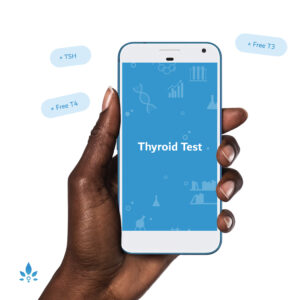How Giving Birth can Cause Postpartum Thyroiditis


Postpartum thyroiditis is a condition that results in inflammation of the thyroid gland after giving birth. The condition first causes high thyroid levels, then results in hypothyroidism or low thyroid levels. Knowing the symptoms of postpartum thyroiditis is important because the symptoms associated with postpartum thyroiditis can mirror those of postpartum depression. Making a clear distinction can help new mothers receive the appropriate treatments.
The thyroid is a butterfly-shaped gland that is responsible for creating the hormones T3, T4, and calcitonin. These hormones are responsible for maintaining your metabolism and can have an effect on your mood. They are also responsible for growth and development.
Postpartum thyroiditis occurs in an estimated 5-10% of women, according to the American Thyroid Association. While the exact cause of postpartum thyroiditis is unknown, a possible explanation is the condition is an autoimmune disease where a woman’s body develops anti-thyroid antibodies after giving birth. Some women are considered to be at higher risk than others, including those with autoimmune disorders such as Type 1 diabetes, a history of thyroid dysfunction, or a family history of thyroid disorders.
Initial symptoms associated with postpartum thyroiditis include:
- Anxiety
- Faster than usual heartbeat
- Fatigue
- Greater sensitivity to heat
- Irritability
- Tremors
- Unexplained weight loss
These symptoms can take place anywhere from 1-4 months after giving birth. After that time, thyroid levels can start to lower, which causes symptoms such as:
- Aches and pains
- Constipation
- Dry skin
- Fatigue
- Greater sensitivity to cold
- Trouble concentrating
If a woman suspects she may have postpartum thyroiditis, a doctor can perform blood testing of thyroid hormone levels. The condition may or may not require medical treatments, depending on how severe it is. Treatments could include a beta-blocker medication to slow down the heart rate or thyroid hormone replacement medications.
The symptoms associated with postpartum thyroiditis will typically resolve after 12-18 months. However, some women may experience permanent effects.
Sources:
- American Thyroid Association
- Postpartum Thyroiditis. Johns Hopkins Medicine
- What Is Postpartum Thyroiditis? Mayo Clinic
- Postpartum Thyroiditis. MedScape
- Postpartum Thyroiditis: Not Just a Worn Out Mom. New York-Presbyterian
Powered by Bundoo®













































